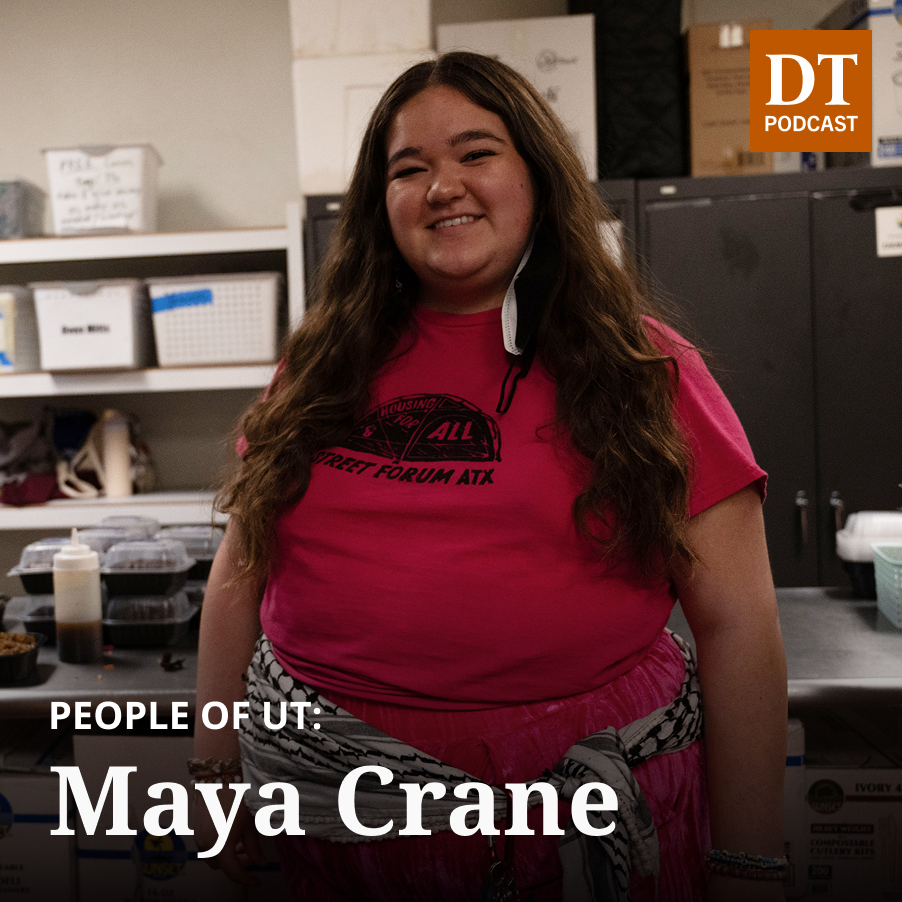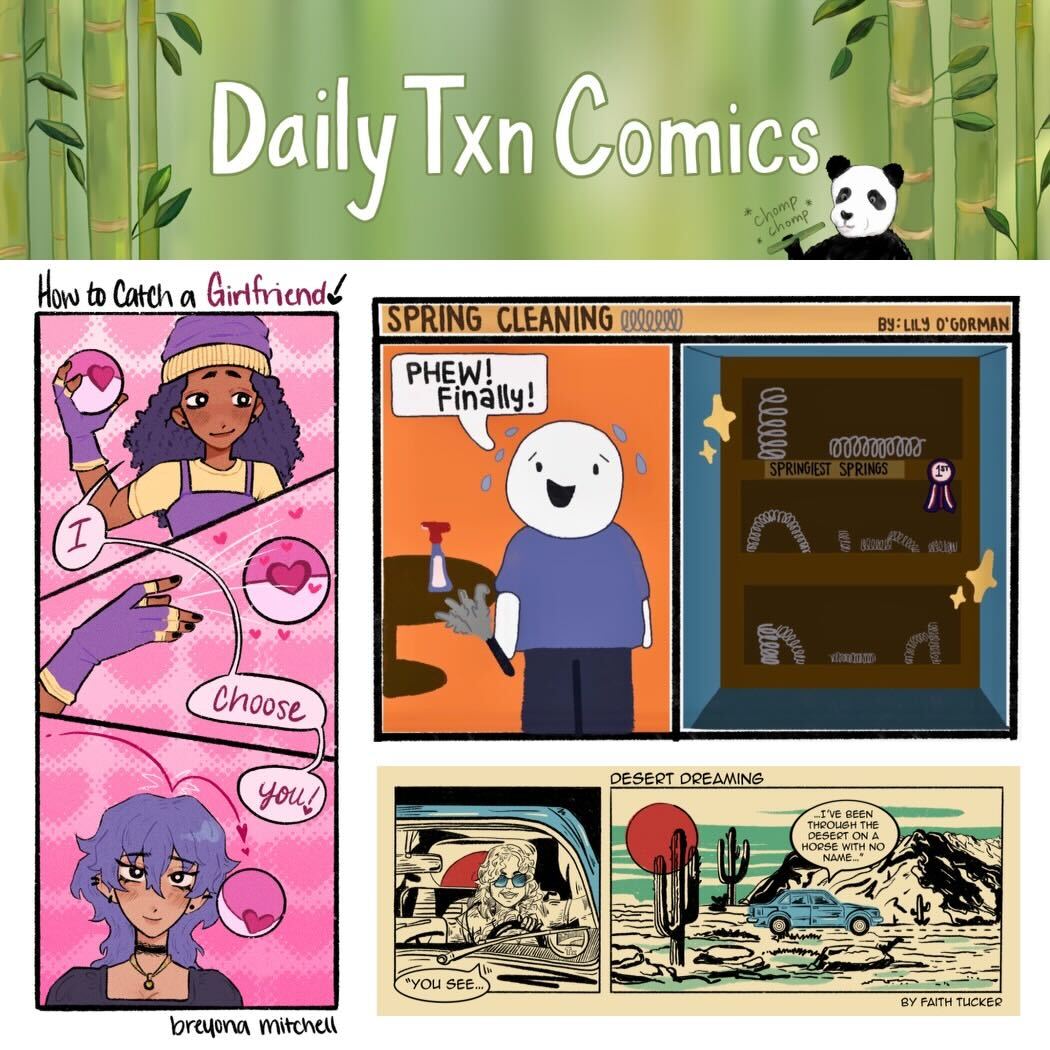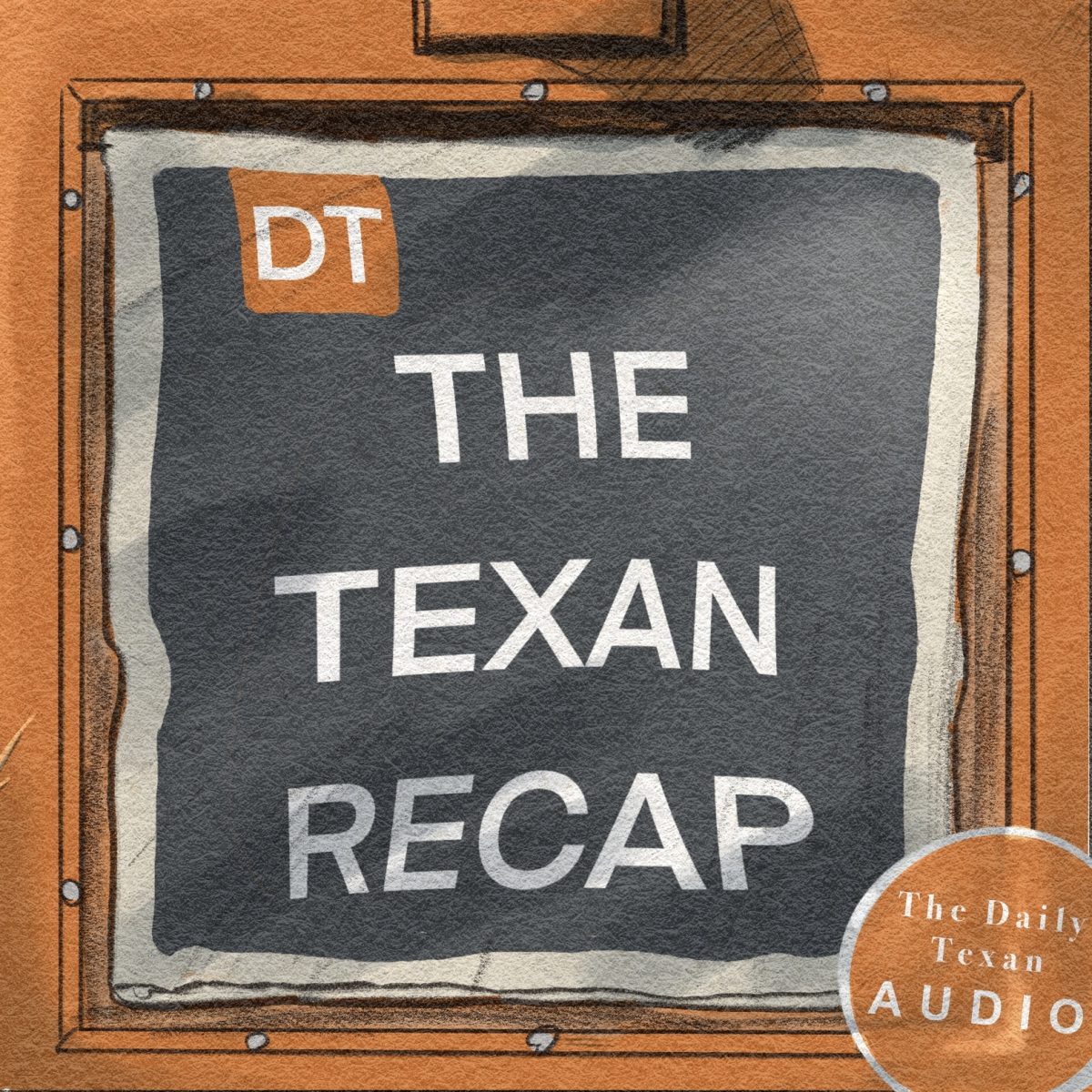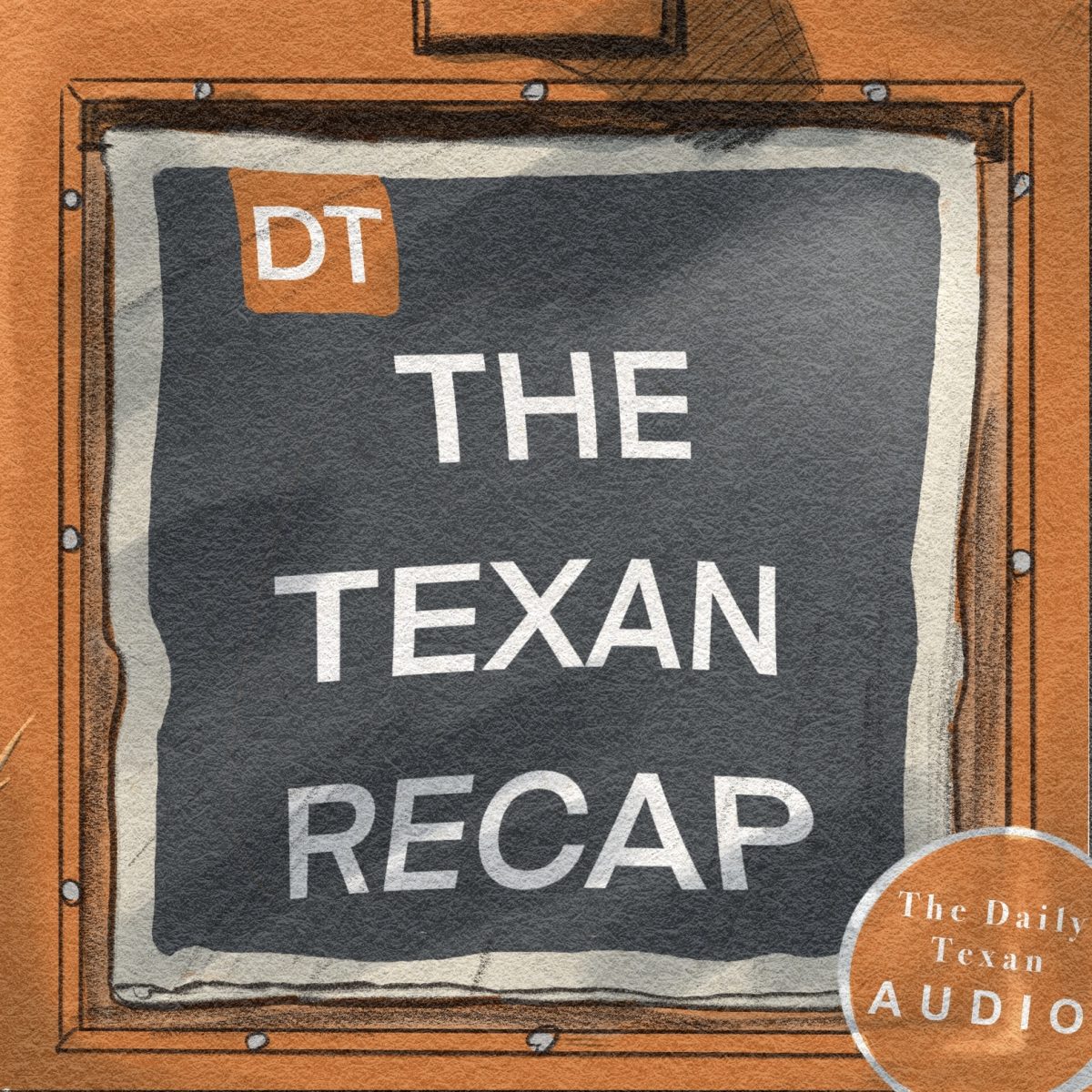Jack Lewellyn: An organization of volunteers at UT is helping hospice patients and their families tell their stories.
I’m your host this week, Jack Lewellyn – and this is The Texan Recap. Here’s what you missed this week.
UT volunteers at the Last Writers organization are helping others to create their memoirs. General Projects Reporter Mazzy Warren is here with the story. Thanks for being here today, Mazzy.
Mazzy Warren: Thanks for having me.
Lewellyn: So just to start us off, could you tell us more about the Last Writers themselves? How did they get their start?
Warren: So the Last Writers initiative began in 2019 at UT Dallas. And then that was brought to Austin fall of 2023 by Sonya Swami, who was a psychology senior at the time. In that first semester, they were really just trying to get everything together, getting prepared to start writing.
They started writing spring of 2024, and since then they’ve produced about 50 memoirs.
Lewellyn: Your story goes over some of the memoirs the Last Writers helped create. Could you tell me more about those?
Warren: Yeah, so I mostly focused on the relationships that writers formed with their patients, and one of the ones I looked really closely at was the relationship between Alexia Schwartz and her patient, Jasmine Campbell.
Their memoir is titled Chronically Unbelievable, and that came out Spring 2024, I believe. I also looked at Love, peace, and Joy by Geetika Polavarapu and Kate Seno. They worked with Glenda Kromer, their hospice patient to talk about her life, her achievements. Um, they coincidentally, both Polavarapu and Kromer were from New Orleans and had made their way to Austin, so that was something that they bonded over.
But I really looked at how their conversations and how the process of writing a memoir really allowed them to make relationships and help each other in that way. And no two relationships look the same. Everyone’s lives are different, and all the writers conduct their interviews in different ways and bond with their patients in different ways and write their memoirs differently.
So everything’s different and everyone takes something different from the organization and their involvement in it.
Lewellyn: Your story covers a few different perspectives of the work. The Last Writers do. Could you elaborate on how they cover the stories of these other folk?
Warren: So the writing process begins with a series of interviews, and those are structured differently depending on everyone’s availability.
And writers are paired with Last Writers officers who help them, like just throughout the interview process and the writing process, because the officers have all written memoirs before. Typically the interview process will, they’ll meet weekly or biweekly for about two to three months with hour to two hour long interviews in there.
They’ll just ask about their life, the stories that are most important to them. They’ll collect information about their childhood, their education, their career, and where they are now. And sometimes they will speak to the families as well, and if they can’t speak to the family members themselves, they will have them write forwards for the memoir, which are then included with the narrative of that person’s life.
After the interviews are completed, they’ll move on to writing the memoirs, and that typically takes about a month. Right now, current members are working on their memoirs. Which are due on April 28th, the last day of classes. But that will be proofread and minorly edited by a leader of the organization.
And then once it’s already, it’ll be printed through Barnes and Noble, one for each of the writers and one for the patient or their family. And additional copies can be purchased on their website. After they’re printed, they’re mailed to writers in the patients. And they’re thinking about making a change so that the memoirs are handed to the volunteers who will then be there to give them to their hospice members in person because it’s a bit more of a personal touch and also saves costs on mailing.
So that’s something that they’re looking to do in the future.
Lewellyn: Now, you also specifically interviewed some members of the Last Writers. What did they tell you?
Warren: They loved it. It sounds like everyone involved really does love it. They love the conversation. They love being able to capture someone’s life and put it down on paper and really verbalize why this person was important and why their life mattered.
And it’s also really sweet for the families to be able to have a physical memento of that person once they pass, since they are in the hospice system and they generally are closer to the end of their life, everyone gets something different out of it as well. A lot of the people I talked to in the organization spoke about how they learned a lot about their mortality, and they learned to understand and love their life where it’s at.
Because talking to people who are so close to the end, they genuinely love their life and they look back on it with such joy and they miss being able to go out into the world or being able to like run around or talk to people that they used to know. And hearing that perspective made them kind of recognize how important it is to enjoy their lives where it’s at now.
You know, they don’t need to be at the end of their life to enjoy it.
Lewellyn: Alright, and are there any other key details or just anything else you would like to add?
Warren: The memoir is the final product of the last writer’s efforts, but the organization is really there to support hospice patients, and it’s really about forming bonds with people, allowing them to tell their story and get a kind of emotional release and really process their life and be able to talk about it and appreciate it.
Although they’re working towards the physical memento, it really is the relationships that people prize from that interaction. And hospice patients have loved to have someone there who will listen to them and respect their stories and really just care about them. Everyone I spoke to thought it was a beautiful process, and the connection really is something that people need and people love.
Lewellyn: Once again, that was General Projects Reporter Mazzy Warren, thanks for being here today.
Warren: Thank you.
Lewellyn: And that’s The Texan Recap for the week of March 31st. I’m Jack Lewellyn.
The Texan Recap is a production of The Daily Texan Audio Department. If you like this episode, make sure to subscribe to The Daily Texan on your streaming platform of choice and follow us on Twitter @texanaudio. This episode was hosted and edited by me, Jack Lewellyn.
Special thanks to Mazzy Warren for their reporting. And as always, cover art is by Emma Berke and music is by Top Flow Productions. To read the news stories in this episode or see more from the Texan, head on over to www.thedailytexan.com. Thanks for listening, and I’ll see you next week.











